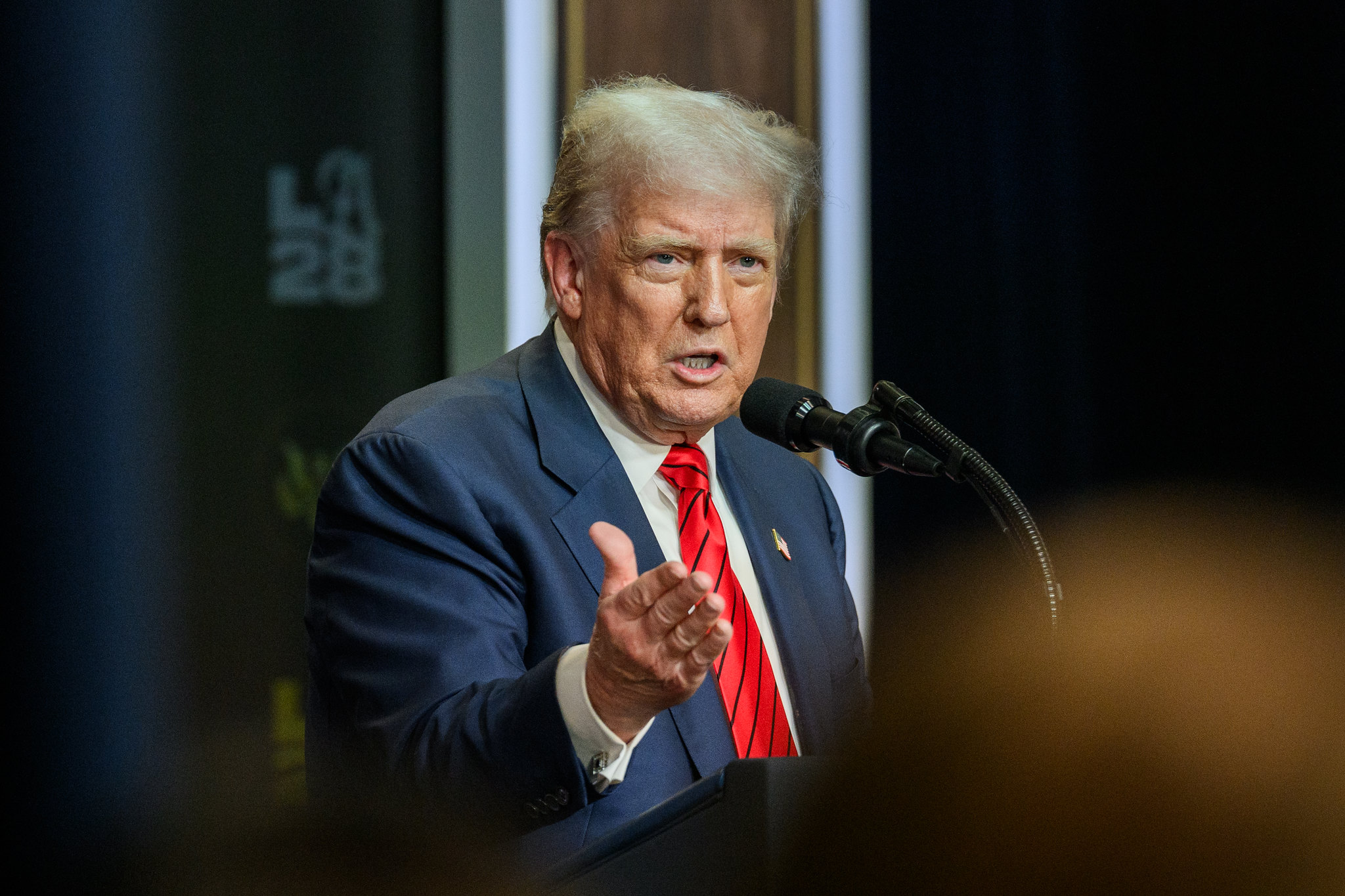The Department of Justice (DOJ) under President Donald Trump has intervened in a case alleging that major tech companies and media outlets colluded to suppress conservative voices, including a nonprofit founded by Robert F. Kennedy Jr. This action is part of a broader strategy by the Trump administration to challenge perceived monopolistic practices in Silicon Valley.
Explainer Trump Administration's DOJ Takes Stance Against Big Tech Monopolies
Critics of the Trump administration often portray it as being lenient towards corporate interests. However, recent actions by the DOJ suggest a shift in Republican attitudes towards corporate power, with a focus on protecting competition and free speech.
Assistant Attorney General Gail Slater emphasized this change during her first major speech at Notre Dame in the spring of 2025, stating, "We are experiencing the emergence of new durable forms of monopoly power." Slater's remarks indicate a commitment to addressing corporate dominance that could harm consumers and competition.
FTC Commissioner Mark Meador echoed this sentiment, arguing that conservatives should reject a laissez-faire approach to antitrust law. He stated, "Big is bad," reinforcing the administration's stance against large corporate entities that may stifle competition.
Despite these assertions, some Democratic lawmakers, including Senators Elizabeth Warren and Cory Booker, continue to criticize Trump's DOJ as being overly friendly to corporate interests. They argue that the administration's decisions, such as its position on the HPE–Juniper merger, demonstrate a lack of commitment to antitrust enforcement. Critics claim that the merger could have strengthened a U.S. alternative to Huawei, a Chinese telecommunications company.
Supporters of the Trump administration's approach argue that the DOJ's decisions are based on legal principles rather than political motivations. They contend that the administration is focused on protecting consumers and fostering competition, as evidenced by its handling of various mergers and acquisitions.
In March 2025, Mark Zuckerberg reportedly offered $450 million to settle a case against Meta, which was later increased to $1 billion. However, the Trump administration allowed the FTC to proceed with the case, leading to Zuckerberg testifying in court. This move has been interpreted as a sign of the administration's commitment to holding powerful companies accountable.
The Trump administration's antitrust team has sought to balance enforcement with the need to avoid stifling legitimate business operations. Slater noted in an interview that there was a perception that many deals were being unnecessarily delayed, which hindered economic efficiency. The administration aims to streamline processes to focus on significant antitrust violations.
As the political landscape evolves, the Trump administration's approach to antitrust enforcement continues to be a point of contention. Supporters argue that it represents a necessary shift towards a more aggressive stance against monopolistic practices, while critics maintain that it fails to adequately address the challenges posed by corporate power.
The ongoing debate reflects broader tensions within American politics regarding the role of government in regulating corporate behavior and protecting consumer interests. The Trump administration's actions may signal a new direction for Republican antitrust policy, one that prioritizes competition and consumer protection over traditional corporate alliances.
Why it matters
- DOJ's intervention signals a shift in Republican attitudes towards corporate power, emphasizing competition and free speech.
- The case highlights tensions between the Trump administration and major tech companies over perceived monopolistic practices.
- Critics argue the administration's actions may still favor corporate interests, raising questions about true commitment to antitrust enforcement.
- The ongoing debate reflects broader political tensions regarding government regulation of corporate behavior and consumer protection.
What’s next
- Monitor upcoming DOJ actions on antitrust cases involving major tech companies.
- Watch for responses from Democratic lawmakers regarding the DOJ's stance on corporate mergers.
- Follow developments in the FTC's case against Meta and Zuckerberg's court testimony.
